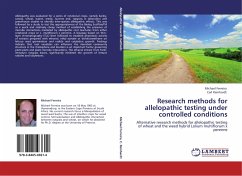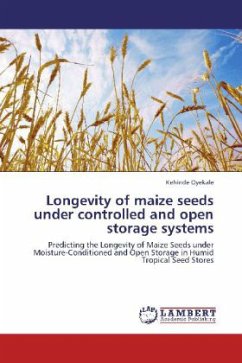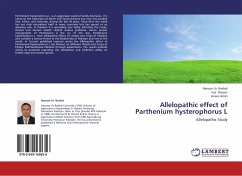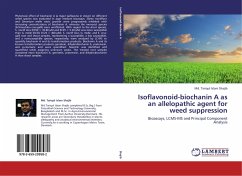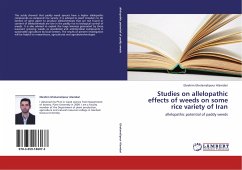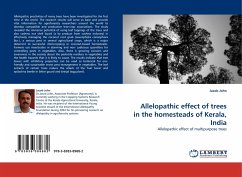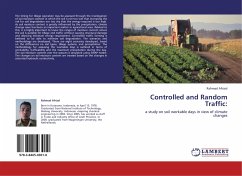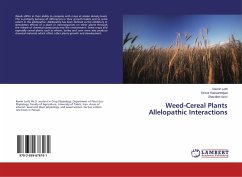Allelopathy was evaluated for a series of rotational crops, namely barley, canola, wheat, lupine, medic, lucerne and, ryegrass in laboratory and greenhouse studies to identify inter-species allelopathic effects. This was followed by a study to test the appropriateness of the Biolog EcoPlateTM as a quick and relatively cheap method of establishing the presence of microbe interactions mediated by allelopathic root leachates from either rotational crops or L. multiflorum x perenne. A bioassay based on thin layer chromatography (TLC) then followed to establish phytotoxic activity of extracts prepared with ethanol, ethyl acetate or dichloromethane on lettuce seed germination and radicle and cotyledon growth. Findings indicate that root exudates can influence the microbial community structure in the rhizosphere and location is an important factor governing plant-plant and plant-microbe interactions. The ethanol extract from fresh, immature ryegrass leaves, significantly inhibited the growth of lettuce radicles and cotyledons.

